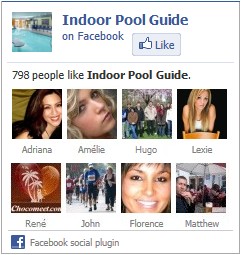
Advice on water treatment is available from your local pool shop, the Environmental Health Section of your local government, the Environmental Health Directorate, of the Department of Health, pool chemical suppliers, and pool maintenance and service companies.
Maintenance
All swimming pools and spas need regular maintenance.
• Keep the water clean and clear.
Leaves and similar material should be removed daily.
Vacuum regularly to remove dirt, sand and debris.
• Clean the skimmer and pump baskets regularly.
• Ensure the water is properly treated, and contains the correct levels of chemicals.
• Keep the pool and spa surfaces in good condition. Repair any cracks in the shell and tiled surrounds.
• Ensure the surrounds drain away from a pool or spa and do not collect puddles. Clean surrounds regularly.
• Keep pipes, filters and motors in good working order.
• Clean filters when required.
• Service all pool equipment according to manufacturer’s directions.
• Ensure all electrical equipment is maintained in good condition. All repairs should be performed by a licensed electrician.
• An automatic pool cleaner will help keep the pool clean and free of debris.
IMPORTANT :
– Keep the water clean and clear.
– Make sure the chemical levels are correct.
– Maintain all pool equipment in accordance with manufacturer’s directions.
Using and Storing Chemicals
Water treatment chemicals are concentrated and potent substances. They can react violently with many common household chemicals and with each other, and must be stored with care.
Safe Chemical Storage
Pool and spa chemicals should be kept in areas that are cool, dry and lockable. The chemicals must be kept away from petroleum products, such as grease, oil, petrol or liquid detergents. They should also not be stored with acids, alcohol, cleaners, soap powders or small quantities of water.
Liquid chemicals should be stored within an isolation bund that can contain any leakages of the material, and prevent chemicals from mixing in the event of a spill.
Safe Chemical Handling
Pool and spa chemicals also need to be handled with care.
• Only buy quantities you can use within the use by dates on the containers.
• Read and follow instructions carefully. If you do not understand something, ask the retailer or pool chemical specialist.
• DO NOT MIX CHEMICALS TOGETHER.
• Use only clean, DRY, non-combustible measuring scoops made from porcelain, recommended plastics or metal. Use separate scoops for each chemical.
• Add chemicals to water. DON’T POUR WATER ONTO CHEMICALS.
• Wash any spilt chemicals off clothes or skin at once, using plenty of water.
• If chemical is spilt, splashed, or wiped into an eye, flood the eyeball with clean running water and get to a doctor or hospital immediately.
• Dispose of water testing samples and spilt chemicals safely by diluting with water and disposing into the garden. They should not be put back into the pool.
Other Safety Issues
There are a number of other important safety issues which are not addressed in this brochure. These include the supervision of young swimmers, resuscitation training, electrical safety, first aid facilities, and the best location of your pool.

